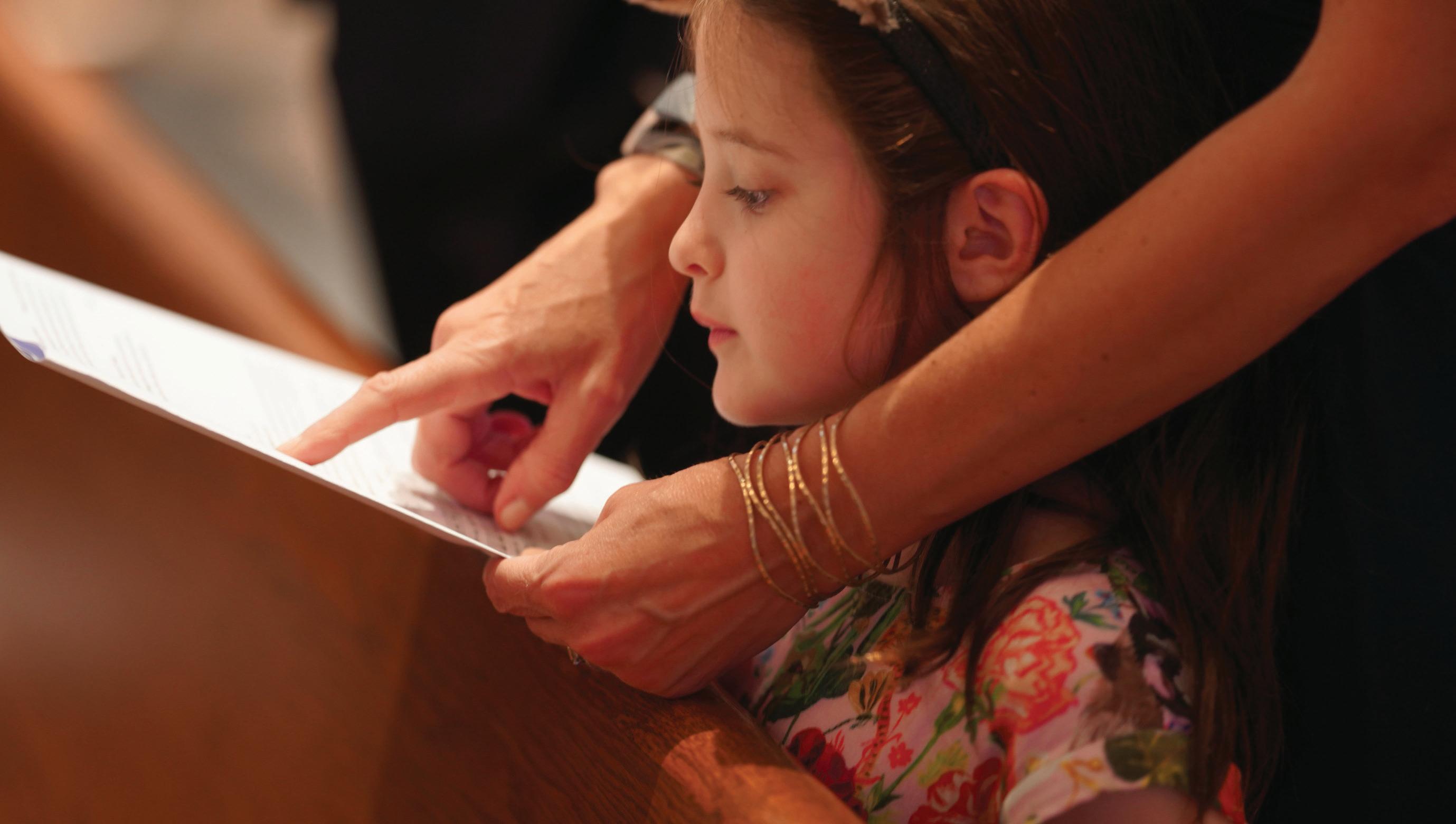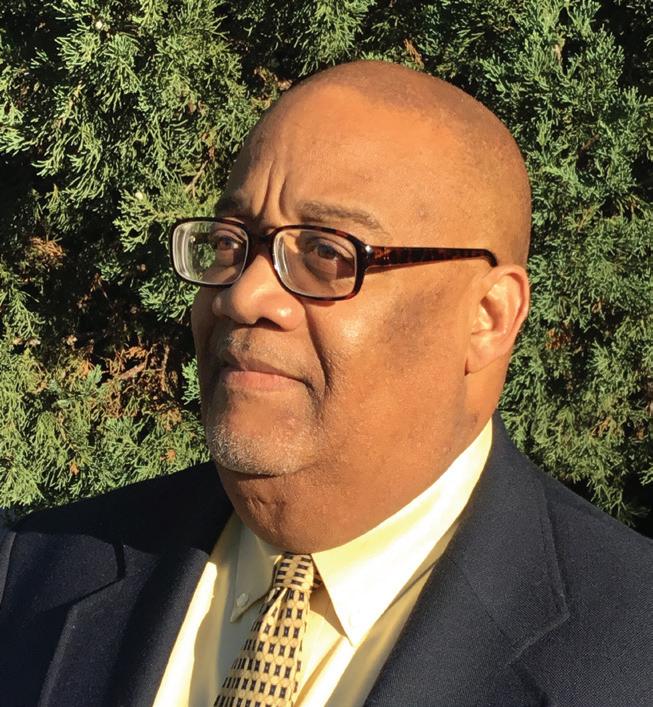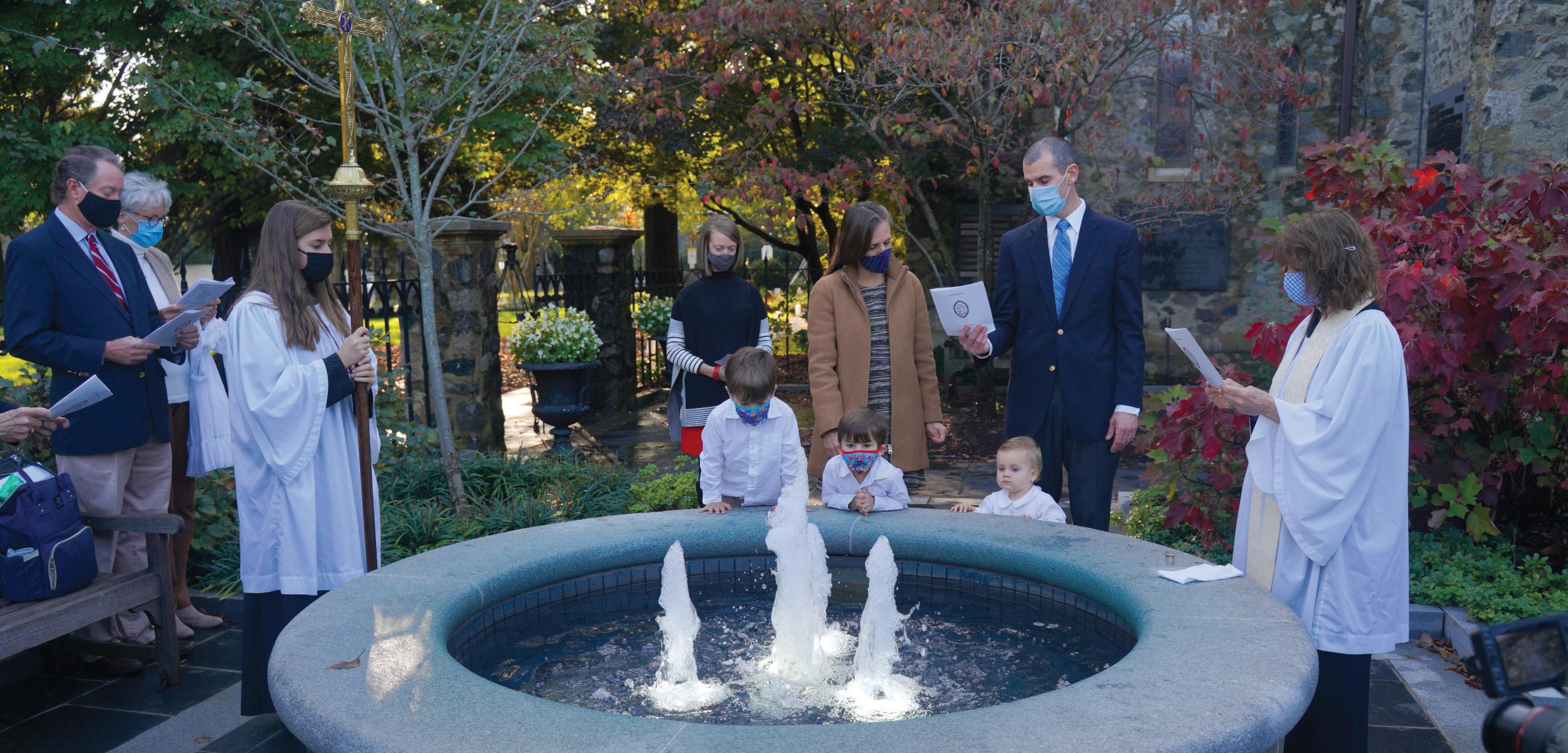I know it is
Being and becoming Mary
Editor’s note: each Monday during the three “covenant That moment in the Christian story when the angel periods” for Emmaus Groups at St. Stephen’s Church (fall, Gabriel visits Mary to tell her she will conceive and winter, and spring), Allison Seay provides reflections on mother the Son of God is one of the most profound a poem, sent to subscribers via email, under the banner of all. Annunciation means announcement and this “Wellspring: Poetry for the Journey.” These free poetry is what it is: there’s going to be a baby, and it’s going guides written by Allison, our associate for religion and to change everything. the arts, are available to all. They’re also published on our Web site at ststephensRVA.org/wellspring. This reflection By Allison Seay Advent’s story about Mary’s pregnancy parallels a more has particular resonance for Advent, and we are publishing it metaphoric pregnancy in which all of us are invited to in Seasons of the Spirit to give you a taste of what Wellspring offers imagine that we too carry within us the promise of God. We are each week. To sign up for these emails, just go to the Wellspring page invited to think about what has been given to us to bear, what of our Web site. we are bringing to life, what it means that everything is changing. We are invited, impossibly, to imagine what we cannot imagine.
Annunciation Even if I don’t see it again—nor ever feel it I know it is—and that if once it hailed me it ever does— And so it is myself I want to turn in that direction not as towards a place, but it was a tilting within myself, as one turns a mirror to flash the light to where it isn’t—I was blinded like that—and swam in what shone at me only able to endure it by being no one and so specifically myself I thought I’d die from being loved like that. Marie Howe
Mary’s baby is our own hope, is our own great thing still to come. I believe that the power of that moment for her is one we share and share absolutely, for not only is God coming to us incarnate, as God comes to Mary, but we are co-hearers with her, year after year, of Gabriel’s announcement: something is happening which we cannot yet see. It happened once, is happening again, is happening forever. Of course, one does not need to be Mary to know about a lifechanging experience. One need not be a mother, nor a woman, to know about birth. And one certainly need not have seen Gabriel to have been “blinded like that” by divine presence. What I love about Marie Howe’s poem, written in the voice of the Holy Mother, is the way it invites us to consider Mary’s interior, hushed, perhaps universal response to the news. Because she alone is the one to have the experience of Gabriel—she who is “no one” (that is, otherwise ordinary) and she who is exceptional (“so specifically myself”)—it is she who must witness for all, though language must surely have failed to fully express what had happened. Who among us has had a flash of knowing that way, a fleeting certainty of the reality of God, a dream, a momentary sensation that assured us Yes! it’s all true. And who among us, though it may never happen again, and though we cannot fully explain it, does indeed “know it is”? The collection in which this poem appears is Howe’s The Kingdom of Ordinary Time, from a section within it titled “Poems from the Life of Mary.” All are written in the voice of the Virgin and from the “I,” balancing reverence and homage with imagination and intimacy. The poet invites us to (re) consider Mary while conceptualizing our own Mary-ness, our own identities as mothers of God. We more than resemble one another—Mary is me, is you, is all of us—and if we are being and becoming Mary, then so we are each also holding within us Christ’s very being.
The Annunciation by Henry Owassa Tanner
4
SEASONS OF THE SPIRIT










